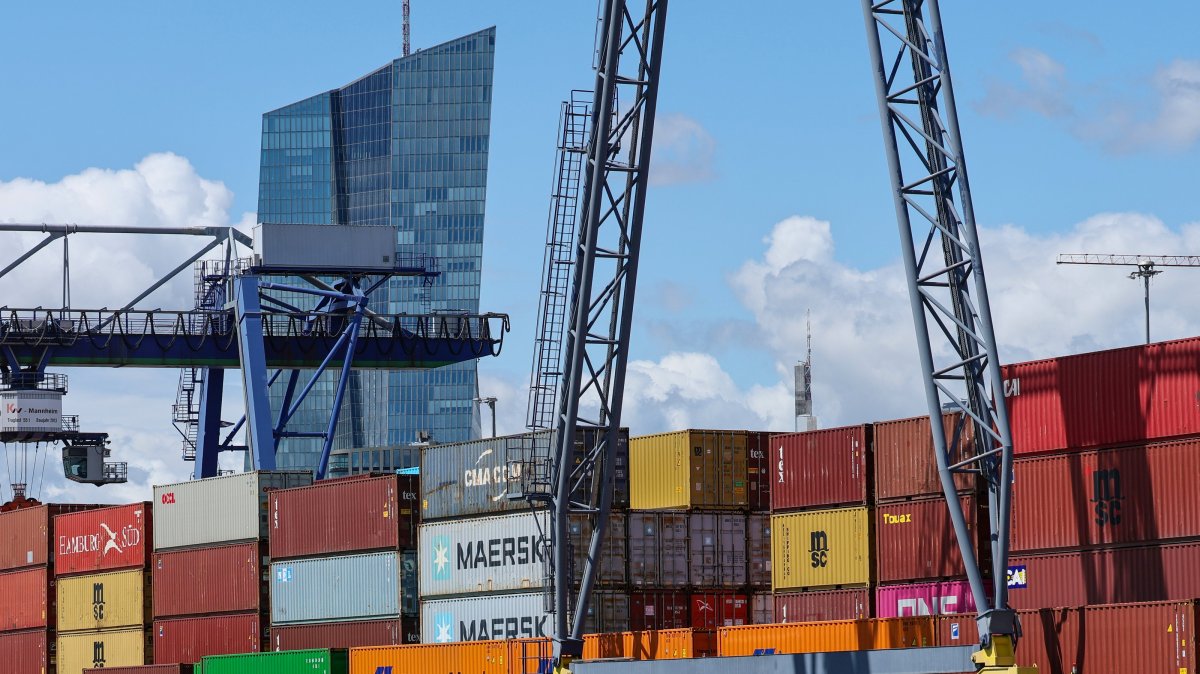Europe’s economy barely grew in the second quarter of the year, official data showed on Wednesday, as the rush to ship goods before new U.S. tariffs eased and output in Germany, the region’s largest economy, unexpectedly declined.
Gross domestic product (GDP) grew an anemic 0.1% compared to the previous quarter in the 20 countries that use the euro currency, the EU statistics agency Eurostat reported.
And prospects are mediocre for the coming months, given the 15% tariff, or import tax, imposed on European goods in the U.S. under the EU-U.S. trade deal announced Sunday. The higher tariff will burden European exports with higher costs to either be passed on to U.S. consumers or swallowed in the form of lower profits.
The eurozone growth still held up better than feared amid expectations for an unchanged reading in the second quarter, suggesting that businesses are adapting to trade uncertainty, potentially reducing the need for more European Central Bank (ECB) interest rate cuts to stimulate the bloc.
Compared to the second quarter a year earlier, the bloc’s economy expanded by 1.4%, ahead of expectations for 1.2%.
The economy sagged after a stronger-than-expected 0.6% growth in the first quarter, a figure inflated by companies trying to move product ahead of U.S. President Donald Trump’s additional tariff onslaught that was announced April 2, two days after the first quarter ended.
When examined together, however, the first two quarters suggest resilience, supported by the most recent PMI reading, which showed that business activity accelerated faster than forecast, supported by a solid improvement in services and the continued recovery in manufacturing.
Europe’s economic powerhouse, Germany, unexpectedly shrank by 0.1% from the previous quarter. Italy’s economy also contracted by 0.1% in the same period.
Growth of 0.3% in France was boosted by a rise in auto and aircraft inventories, while domestic demand was otherwise stagnant. That left Spain as the only strong performer among the four largest eurozone economies at 0.7%.
France’s Economy Minister Eric Lombard said the figures for France demonstrated the country’s companies were, however, proving resilient to U.S. tariff hikes.
“With the 15% U.S. universal tariff likely to subtract around 0.2% from the region’s GDP, growth is likely to remain weak in the rest of this year,” said Franziska Palmas, senior Europe economist at Capital Economics.
The 27-country EU economy expanded by 0.2% over the April-June period from the previous quarter, after registering 0.5% growth in the first three months of 2025.
Uncertainty far from over
Germany’s economy remains roughly the same size as it was before the pandemic six years ago, as its export-dominated business sector struggles with multiple issues, including stronger competition from China, a lack of skilled workers, higher energy prices, lagging infrastructure investment, and burdensome regulation and bureaucracy.
Palmas said that Germany “is likely to be hit harder than other major economies by tariffs and continue to struggle this year” before increased government spending from the new government under Chancellor Friedrich Merz, aimed at boosting defense and making up the infrastructure gap, starts to boost the economy in 2026.
Economists also argue that a sharp increase in budget spending from next year could be a boost to growth that will offset much of the tariffs’ impact.
This economic resilience is a key factor why financial investors think the ECB is close to done easing borrowing costs after halving its key rate to 2% in the past 13 months.
Markets see just a 50% chance of another cut by December and a small chance that rates will actually start rising toward the end of 2026 as the economy gathers speed and price pressure starts rising again.
Uncertainty is far from over, however.
The EU has yet to sign its trade deal with the U.S., and plenty of details remain to be worked out, indicating that it could take months for businesses to gain the confidence to make investment decisions.
China has also yet to strike a deal with the U.S., raising fears that Beijing will be forced to dump surplus goods on the rest of the world, depressing prices elsewhere.
Such dumping could then lower eurozone inflation and force the ECB into cutting interest rates on fears that below-target inflation, its main worry in the pre-pandemic decade, is returning.

